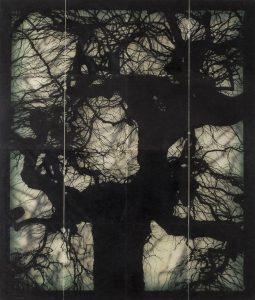1 result
“Painting is always wiser than the painter, and when it wants to, it reveals a magical world far superior to what we can imagine."
Biografia
Joan Ponç (Barcelona 1927 - Saint-Paul-de-Vence, France 1984) was an important avant-garde artist whose fidelity to ideas far removed from the dominant currents of the time placed him on the margins of official artistic discourses. His pictorial universe is coherent and configures an intelligent, poetic and complex symbolic world.
He first studied painting with Ramon Rogent. Joan Vinyals organized his first exhibition at the Bilbao Art Gallery (1946). In 1947 he exhibited at Els Blaus de Sarrià, presented by JV Foix. With Joan Brossa he founded the magazine Algol –in which Enric Tormo, Arnau Puig, Jordi Mercadé and Francisco Boadella collaborated–, a direct precedent of what would become Dau al Set, a magazine he was the main editor of. He was part of the avant-garde group of the same name, with members such as Joan Josep Tharrats, Arnau Puig, Modest Cuixart, Antoni Tàpies and Joan Brossa, among others. Founded in 1948, the magazine marked the resurgence of the creative impulse in the depression of post-war Barcelona.
In 1952 he appeared at the First Hispano-American Biennial. Dissatisfied with the Catalan artistic circles, in 1953 he moved to Brazil. After a stay in Paris, where he reencountered Joan Miró, who recommended him to Brazilian artistic circles, he went to Brazil and lived in Sao Paulo, where he stayed until 1962. In 1954 he had an exhibition at the São Paulo Museum of Modern Art with a great success, since the same museum acquired all the works. There his painting became more hermetic and refined.
The Sao Paulo Biennial awarded him the Grand International Drawing Prize. Ill, in 1962 he returned to Catalonia, settled in Bruc, under Montserrat, and then lived for a time in Cadaqués. From that moment on, his work was widely available in the national and international artistic circuits and received recognition from the public and critics.
In 1964 he took up residence in Barcelona, where he presented a retrospective at the René Metras gallery. At the VIII Sao Paulo Biennial (1965) he was awarded the Grand International Drawing Prize. Already renowned, he exhibited in New York, Rio de Janeiro, Bonn, Paris, Frankfurt, Geneva, Antibes, Madrid, etc. In 1984 he died in his house in Saint Paul de Vence (France).
When it becomes evident that awareness of pollution is a good pretext for technocrats, that civic education tends to end political commitments and sexual education to inhibit pleasure, someone like Ponç needs to recover the ways of the pre-capitalist and pre-industrial world. Faced with the demand for normality, which represents the hypocrisy of the alienated man (adapted to the interests of others), Ponç's painting tends to preserve the primal, radical and cruel awareness of otherness and helps us to see correctly that reality is conflictive. The perspective of time has confirmed the importance and exceptionality of Ponç's work, as well as the intensity of his voice and the need to rediscover it.

